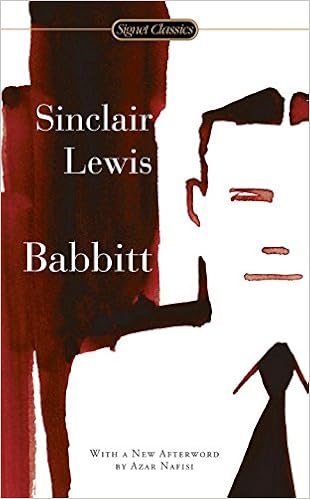
I enjoyed Babbitt much more than I thought I would. It's not easy at the start, as the reader gets thrown into a rah rah early 20th century American business environment in the fictional city of Zenith. There isn't a whole lot of plot; it's more a novel of characters, including, of course, George Babbitt. He initially appears to be a pumped-up, full of himself aspirant to the 1%. For a large portion of the book he says all the right things at various local community clubs and political events about squashing unions and rewarding the go-getters needed to get the country back on its feet after the first world war. He gets a reputation as an orator, and his real estate business prospers. But even as he becomes a leader in Zenith's "boosterism", underneath it all he yearns to slip away with the fairy child of his dreams:
"He was somewhere among unknown people who laughed at him. He slipped away, ran down the paths of a midnight garden, and at the gate the fairy child was waiting. Her dear and tranquil hand caressed his cheek. He was gallant and wise and well-beloved; warm ivory were her arms; and beyond the perilous moors the brave sea glittered."
After a friend's life takes a disastrous turn, Babbitt rebels and for a time searches for the fairy child among women of his acquaintance. He is reminded of his more liberal views when young, and begins to see his own rebellious son differently.
The book was a huge success in its time, and in 1930 Lewis won the Nobel Prize, the first American to do so. He writes really well, and more than once I thought this was what Updike was trying to do, with less success. Babbitt is a satire of crass American commercialism and superficial optimism, but the book also has a heart. "Babbitt" became a word in our lexicon defined as ""a person and especially a business or professional man who conforms unthinkingly to prevailing middle-class standards". To me, that definition is unfair, as Georgie Babbitt wasn't an unthinking conformist. He yearned for escape with the fairy child, but determinedly, with "pep", he tried to make the best of the hand he saw himself dealt. A four star read.
No comments:
Post a Comment